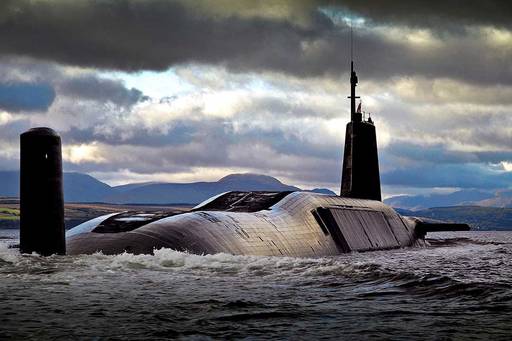UK Nuclear Deterrence Network

Evidence of the renewed salience of nuclear weapons is growing: the dawn of nuclear multipolarity, deepening integration of nuclear and non-nuclear capabilities, and evolving nuclear doctrines and capabilities across nuclear-weapons states. This resurgence of nuclear challenges on the global stage, coupled with developments in transatlantic and intra-European relations, requires a fresh assessment of the current state and future of nuclear deterrence for the UK and its allies.
Mission Statement
The UK Nuclear Deterrence Network, a consortium comprising King’s College London, the RUSI and the University of Leicester, seeks to understand the practice and theory of deterrence, assess the value of deterrence against a changing international landscape, generate evidence-based research and recommendations, and develop a UK-based community of practice engaged with the role and future of deterrence for the UK and its allies.
The Network will offer innovative approaches to current nuclear deterrence challenges through two main pathways: providing intellectual contributions through research and publications and building a stronger knowledge base for early- and mid-career experts through the Deterrence Futures Fellowship.
Project Summary
This project aims to analyse and expand the landscape of ideas and thinking surrounding UK nuclear deterrence by engaging a range of perspectives and approaches to the current and future role of deterrence for the UK and further afield.
This will be achieved through a combination of research and knowledge generation which will provide intellectual contributions to the understanding of current nuclear deterrence challenges. The project will also include an international dimension to connect British and NATO allied communities of practice.<
The project seeks to generate fresh thinking across three areas concerning the changing circumstances facing the British nuclear deterrent and their consequences for UK nuclear policy:
- Great power strategic competition
- Navigating a landscape with multiple nuclear competitors
- Updating strategic concepts and practices of deterrence
By inviting a diverse range of candidates to participate in the Deterrence Futures Fellowship, the UK Nuclear Deterrence Network also hopes to establish a more modern and holistic approach to deterrence while advancing innovation and improvements in UK policymaking.
Project Sponsor
The project is supported by the UK Ministry of Defence through its Nuclear Deterrence Fund.
Meet the Team
The UK Nuclear Deterrence Network is a led and managed by a consortium of British institutions at the leading edge of nuclear policy studies in the UK: The University of Leicester, King’s College London, and the Royal United Services Institute
Consortium Leadership
Professor Andrew Futter
UK PONI Advisory Board Member

Lukasz Kulesa
Director, Proliferation and Nuclear Policy
Proliferation and Nuclear Policy

Nicola Leveringhaus
Senior Lecturer in East Asian Security and International Relations, King’s College London

Jack Crawford
Research Fellow
Proliferation and Nuclear Policy
Darya Dolzikova
Senior Research Fellow
Proliferation and Nuclear Policy

Mar Casas Cachinero
Programme Manager
Proliferation and Nuclear Policy

The UK Nuclear Deterrence Network is now seeking applications for its inaugural Deterrence Futures Fellowship, an 18-month cohort of early- and mid-career professionals seeking to learn about and engage with the concept of deterrence and its role in UK and international security.
Applications are now open until 23:59 BST on 2 July 2025.
Please contact Mar Casas Cachinero, Programme Manager on MarCC@rusi.org if you have any questions regarding the application process.
About the Deterrence Futures Fellowship
This 18-month programme is for early- and mid-career professionals with 3-7 years of relevant professional or academic experience who are keen to deepen their knowledge and engage with the evolving concept and practice of deterrence and its role in UK and international security.
We welcome applications from citizens of NATO member states working across academia, think tanks, NGOs, governments, the armed forces, and the private sector.
Fellows will deepen their knowledge on nuclear deterrence by engaging with a range of perspectives and approaches to the current and future role of deterrence for the UK and further afield. Over the course of the programme, Fellows will analytically engage with the following thematic areas, among others:
- Foundations of UK and Allied nuclear deterrence
- Nuclear, conventional, and integrated deterrence and emerging and disruptive technologies
- The politics of nuclear deterrence and its interaction with disarmament efforts and platforms
- Escalation management and strategic communications
- Evolving capabilities of Russia and China and the changing nuclear order
The fellowship also provides an opportunity for Fellows to connect with senior officials and top international experts, participate in scenario-based discussions and exercises, and receive professional development support.
Fellowship programming will include:
- Five in-person meetings
- Two site visits (one in the UK, one elsewhere in Europe)
- Regular online professional development seminars, meetings with experts, and programming tailored to Fellows’ interests
- Development of policy briefs, with the option to write short-form policy articles, related to the UK Nuclear Deterrence Network’s three areas of focus.
The UK Nuclear Deterrence Network will cover all travel and accommodation costs for the programme’s in-person engagements.
The Fellowship is primarily open to British citizens, as well as citizens of other NATO member states currently residing in the United Kingdom. A limited number of spaces are reserved for citizens of any NATO member state residing in other European NATO states.
We actively encourage applications from individuals of all backgrounds, including people of colour, women, LGBTQIA+ individuals, and people with disabilities.
We are committed to creating an inclusive, respectful environment where diverse perspectives are valued and welcomed. Fellows will represent a broad range of viewpoints and backgrounds and must therefore embrace an open mindset and voice disagreements respectfully.


